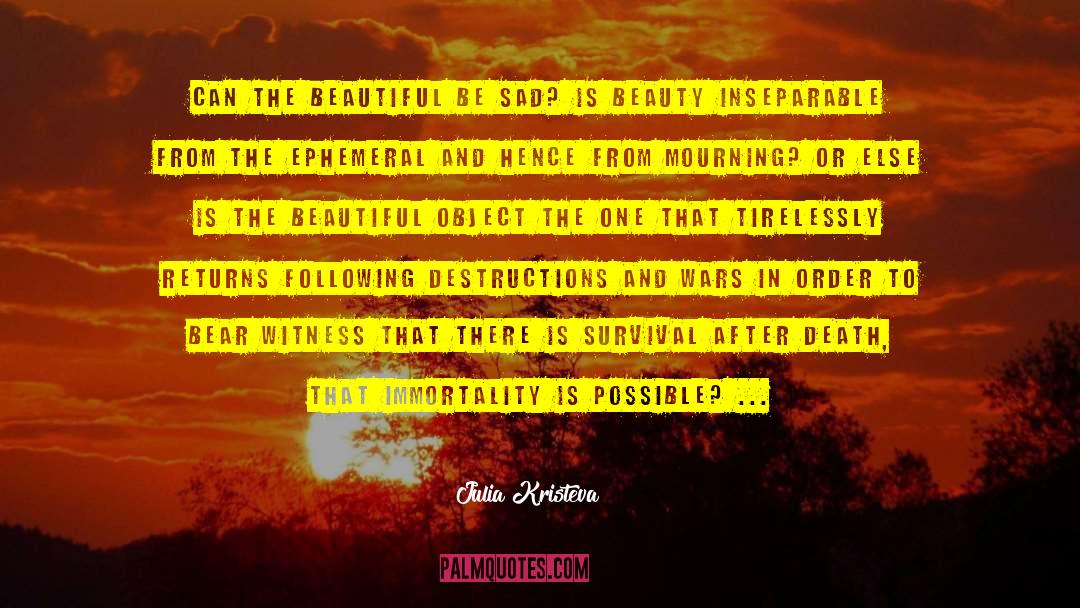Julia Kristeva Famous Quotes
Reading Julia Kristeva quotes, download and share images of famous quotes by Julia Kristeva. Righ click to see or save pictures of Julia Kristeva quotes that you can use as your wallpaper for free.
The depressed person is a radical, sullen atheist.
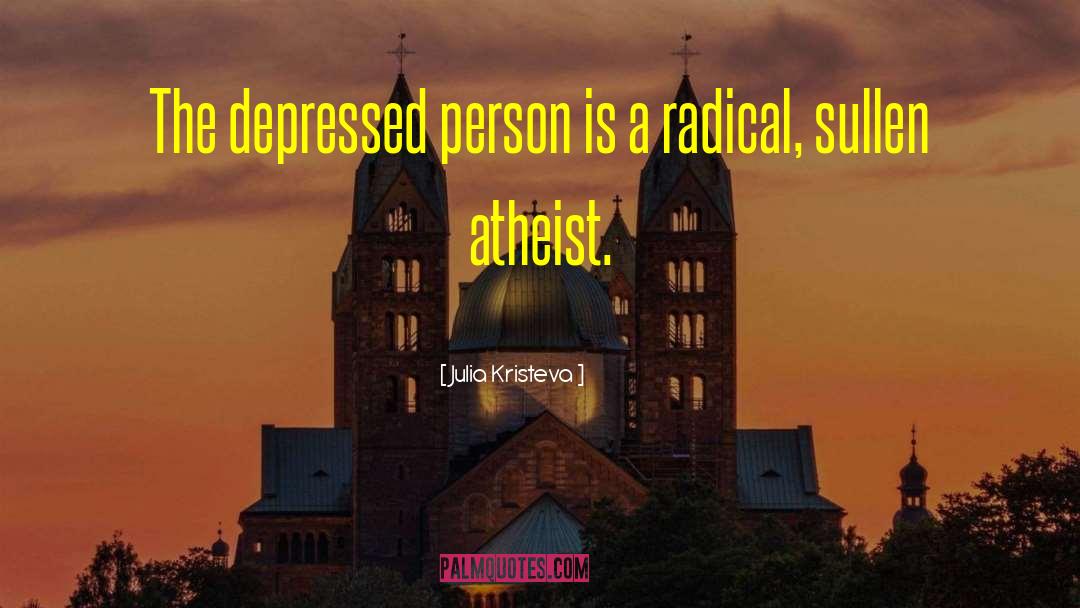
He is a foreigner, he is from nowhere, from everywhere, citizen of the world, cosmopolitan. Do not send him back to his origins.

The questioning of any and all entities, including belief and its objects, is one of Christianity's most impressive legacies; and humanism, its rebellious child, must not be prevented from developing this legacy [ «et l'humanisme, son enfant rebelle, ne saurait être empêché de développer ce legs. » ].
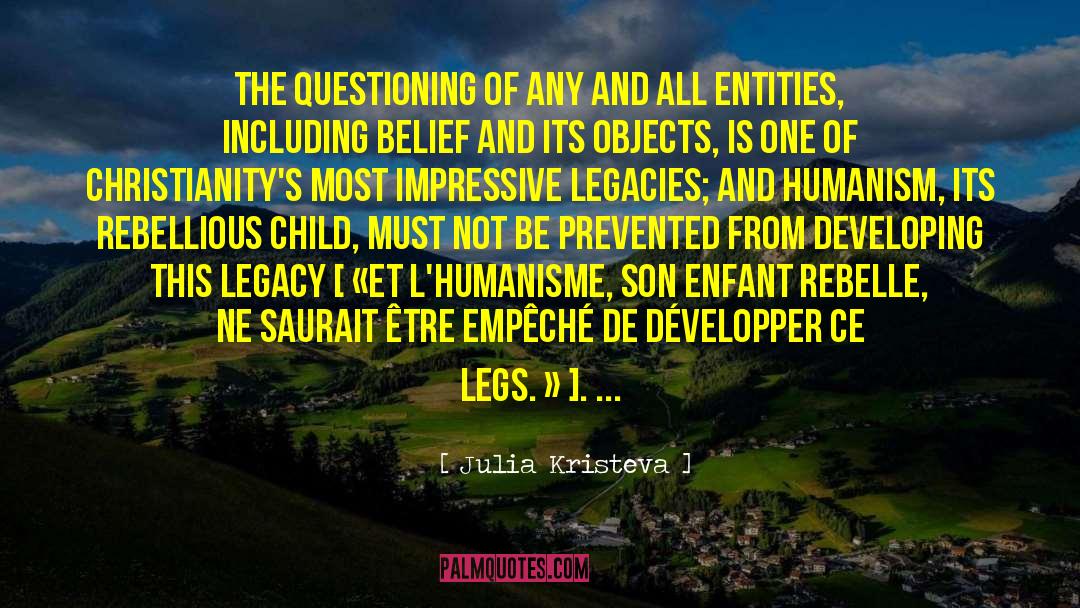
[the abject] is simply a frontier, a repulsive gift that the Other, having become alter ego, drops so that the "I" does not disappear in it but finds, in that sublime alienation, a forfeited existence.
![Julia Kristeva Quotes: [the abject] is simply a Julia Kristeva Quotes: [the abject] is simply a](https://palmquotes.com/author/julia-kristeva-quotes-345258.jpg)
Significance is inherent in the human body.

Music, rhythm, rigadoon, without end, for no reason.
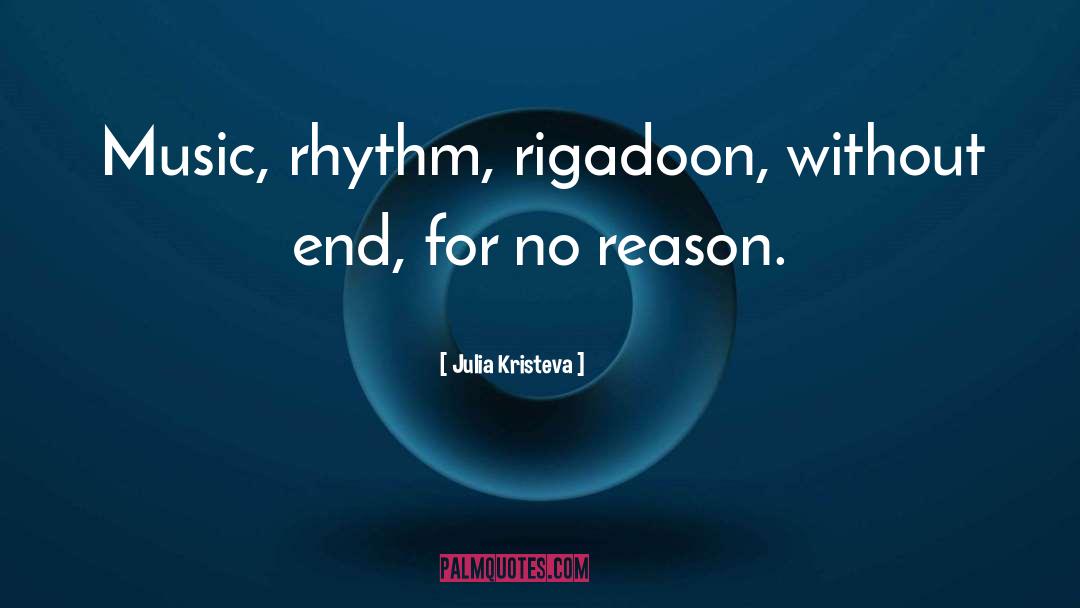
And nevertheless, no, I have nothing to say to them, to my parents. Nothing. Nothing and everything, as always. If I tried – out of boldness, through luck, or in distress – to share with them some of the violence that causes me to be so totally on my own, they would not know where I am, who I am, what it is, in others, that rubs me the wrong way.
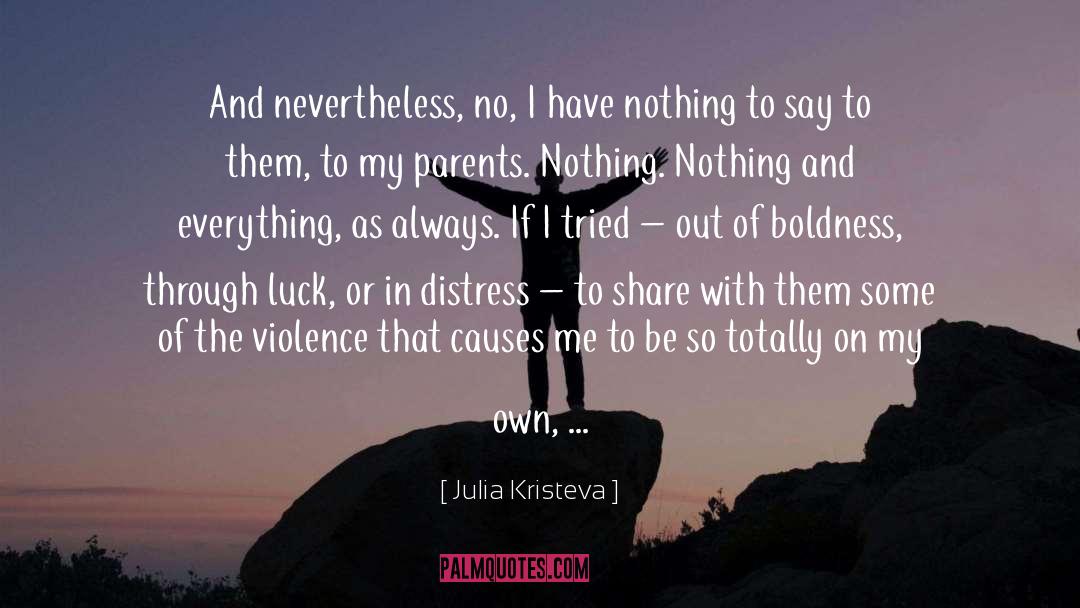
The sadness that overwhelms us, the retardation that paralyzes us, are also a shield - sometimes the last one - against madness
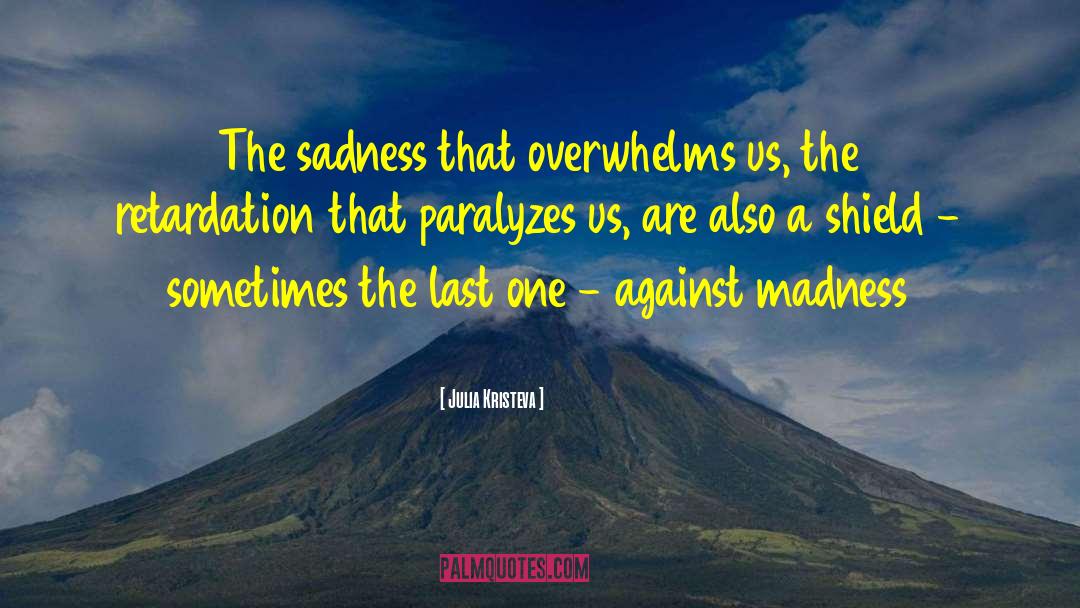
The clean and proper (in the sense of incorporated and incorporable) becomes filthy, the sought-after turns into banished, fascination into shame. Then, forgotten time crops up suddenly and condenses into a flash of lightning an operation that, if it were though out, would involve bringing together the two opposite terms but, on account of that flash, is discharged like thunder. The time of abjection is double: a time of oblivion and thunder, of veiled infinity and the moment when revelation bursts forth.
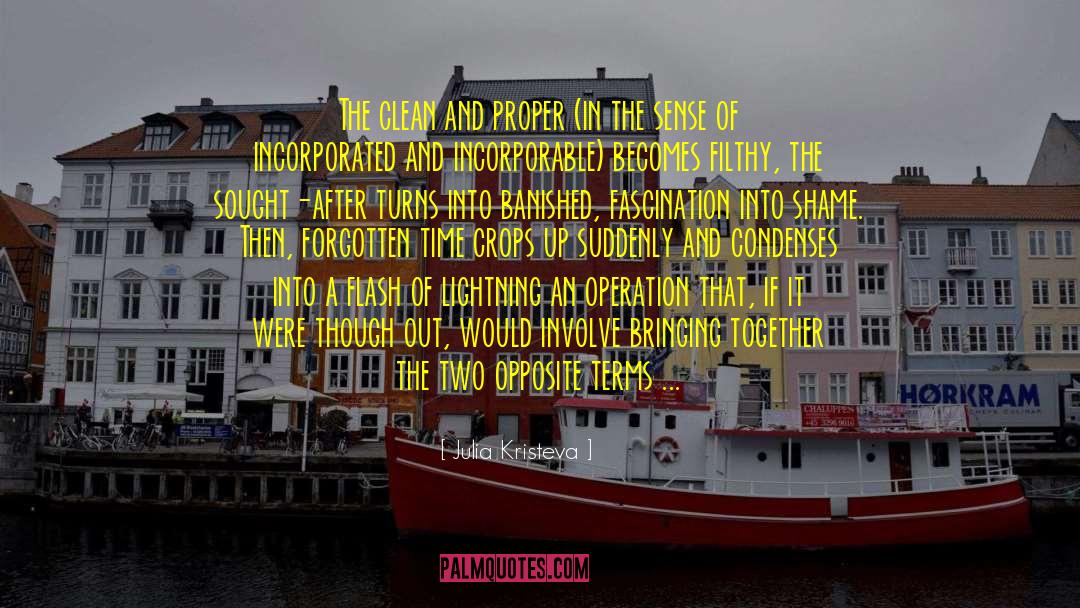
But by the way, who is the murderer? The one who does not know my relatives, or myself, as I erect my new life like a fragile mausoleum where their shadowy figure is integrated, like a corpse, at the source of my wandering?
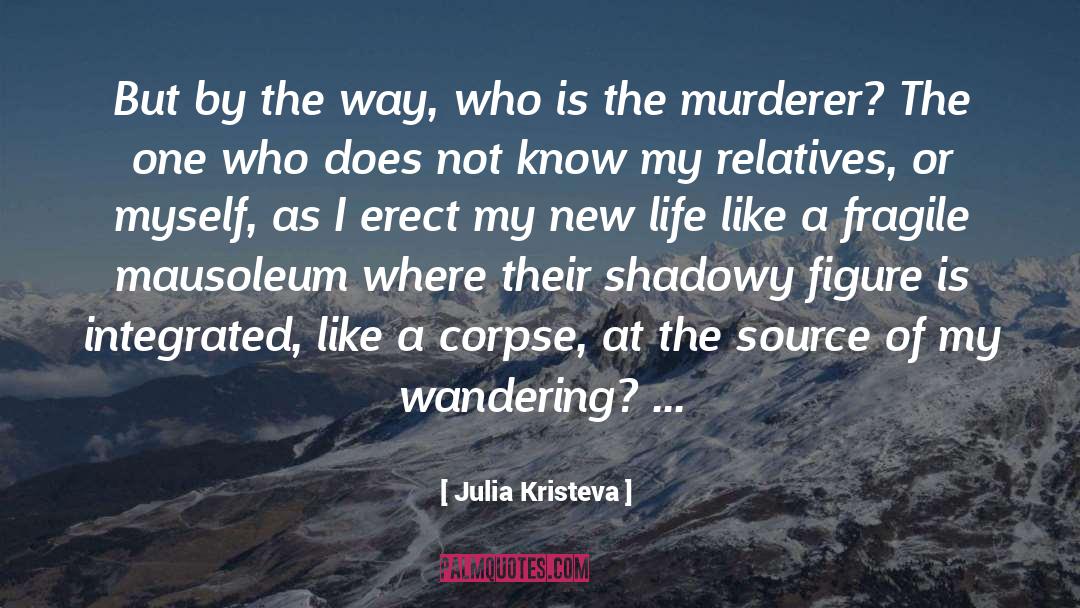
Naming suffering, exalting it, dissecting it into its smallest components – that is doubtless a way to curb mourning.
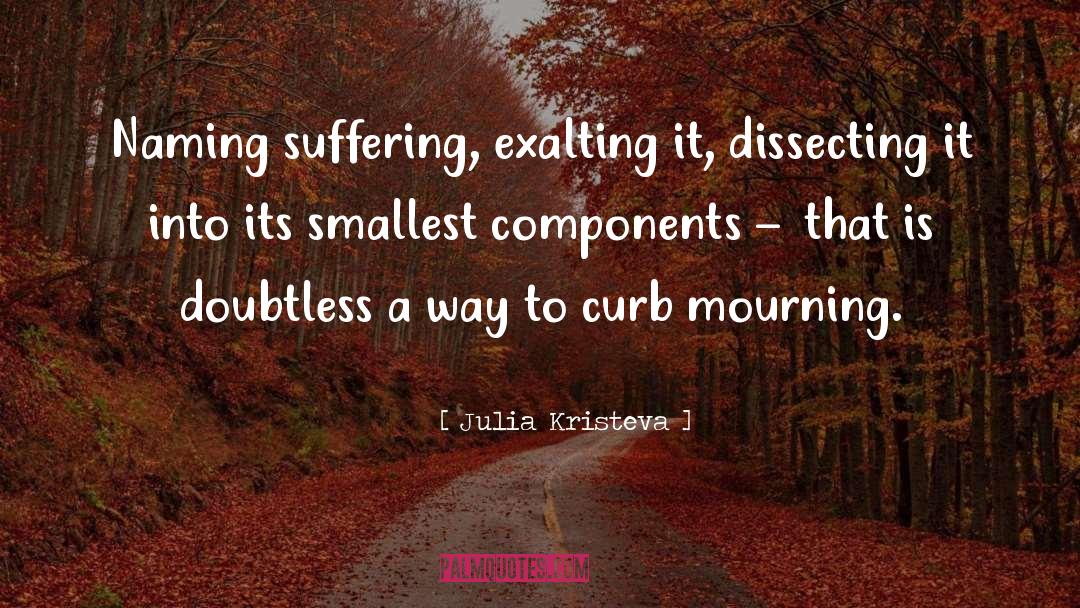
That faith be analyzable does not necessarily imply a method for getting by without it ...
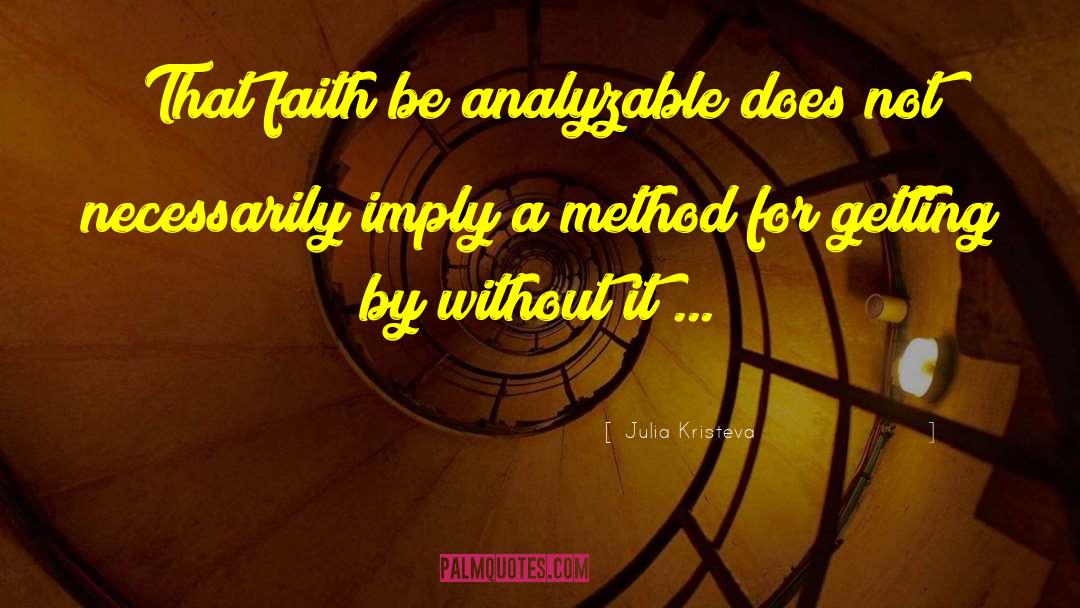
The phobic has no other object than the abject. But that word, "fear"- a fluid haze an elusive clamminess- no sooner has it cropped up than it shades off like a mirage and permeates all words of the language with nonexistence, with a hallucinatory, ghostly glimmer. Thus, fear having been bracketed, discourse will seem tenable only if it ceaselessly confront that otherness, a burden both repellent and repelled, a deep well of memory that is unapproachable and intimate: the abject.
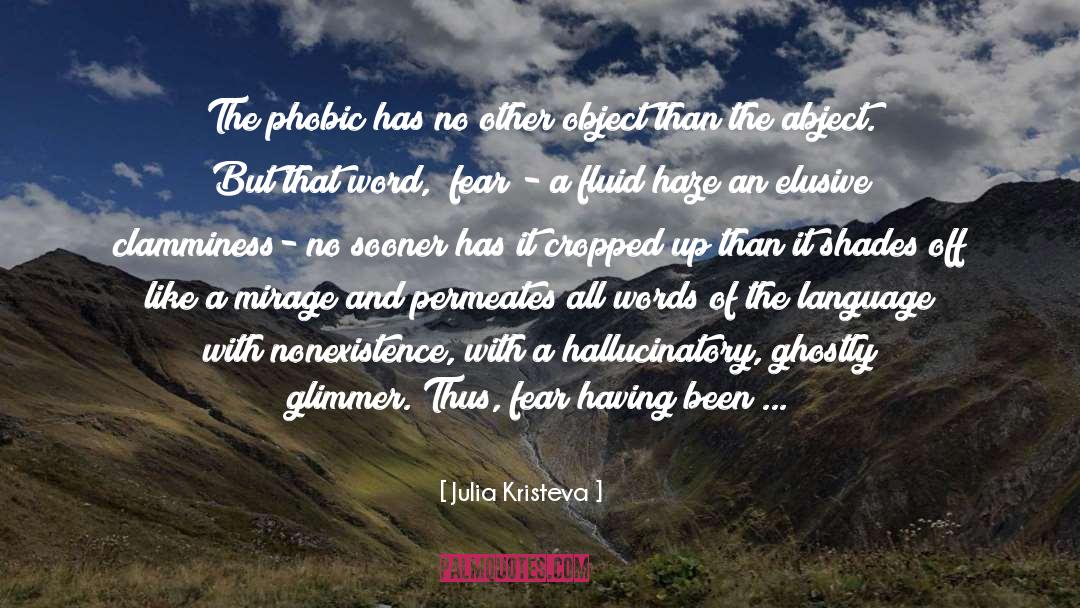
To be deprived of parents - is that where freedom starts?
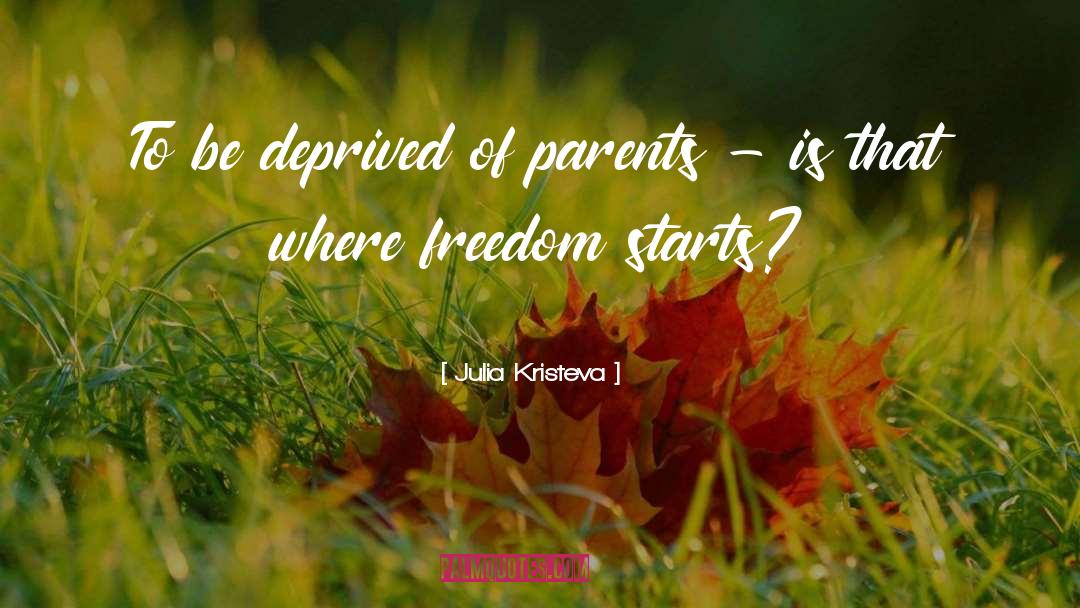
Along with the sight-clouding dizziness, nausea makes me balk at that milk cream, separates me from the mother and the father who proffer it. "I" want none of that element, sign of their desire; "I" do not want to listen, "I" do not assimilate it. "I" expel it. But since the food is not an "other" for "me," who am only in their desire, I expel myself, I spit myself out, I abject myself with the same motion through which "I" claim to establish myself. That detail, perhaps an insignificant one, but one that they ferret out, emphasize, evaluate, that trifle turns me inside out, guts sprawling; it is thus that they see the "I" am in the process of becoming an other at the expense of my own death, During that course I'm which "I" become, I give birth to myself amid the violence of sobs, of vomit. Mute protest of the symptom, shattering the violence of a convulsion that, to be sure, is inscribed in a symbolic system, but in which, without either wanting or being able to become integrated in order to answer to it, it abreacts. It abjects
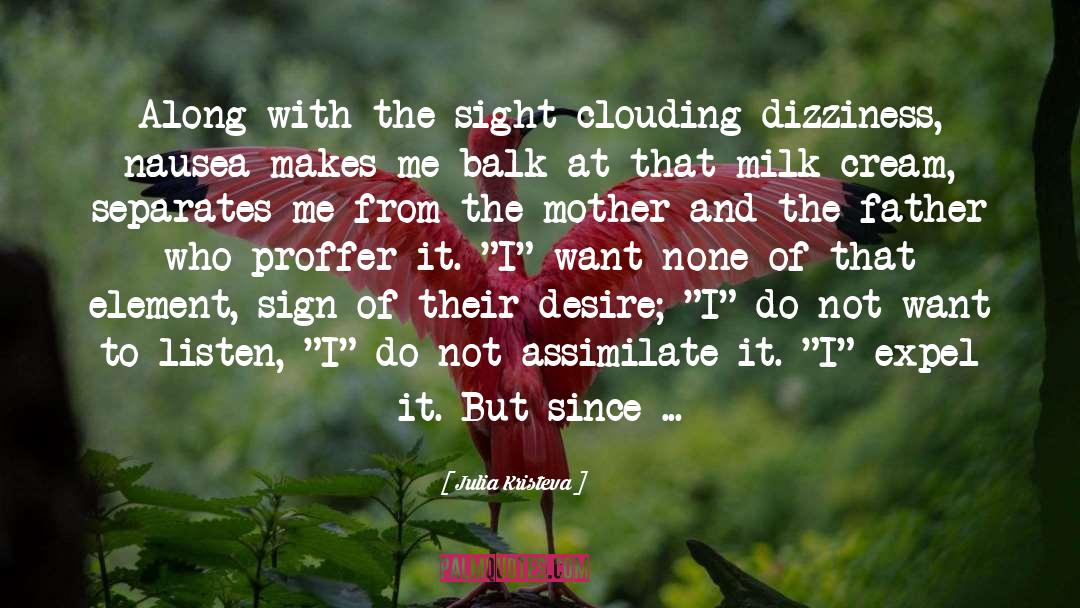
Since he has nothing, since he is nothing, he can sacrifice everything.
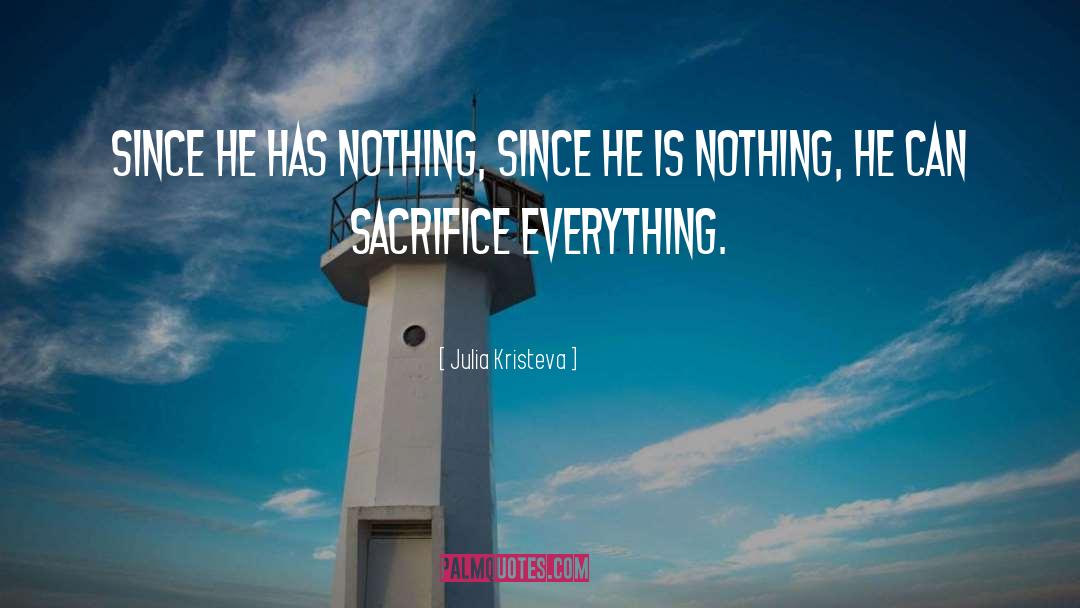
One who is happy being a cosmopolitan shelters a shattered origin in the night of his wandering.
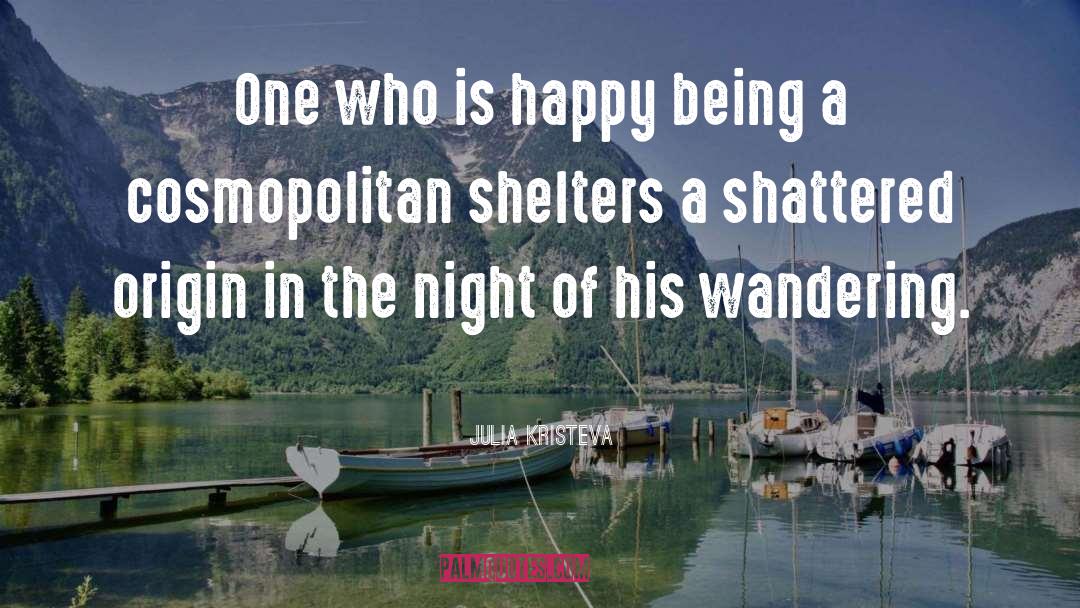
When the starry sky, a vista of open seas, or a stained-glass window shedding purple beams fascinate me, there is a cluster of meaning, of colors, of words, of caresses, there are light touches, scents, sighs, cadences that arise, shroud me, carry me away, and sweep me beyond the things I see, hear, or think, The "sublime" object dissolves in the raptures of a bottomless memory. It is such a memory, which, from stopping point to stopping point, remembrance to remembrance, love to love, transfers that object to the refulgent point of the dazzlement in which I stray in order to be.

Or should one recognize that one becomes a foreigner in another country because one is already a foreigner from within?
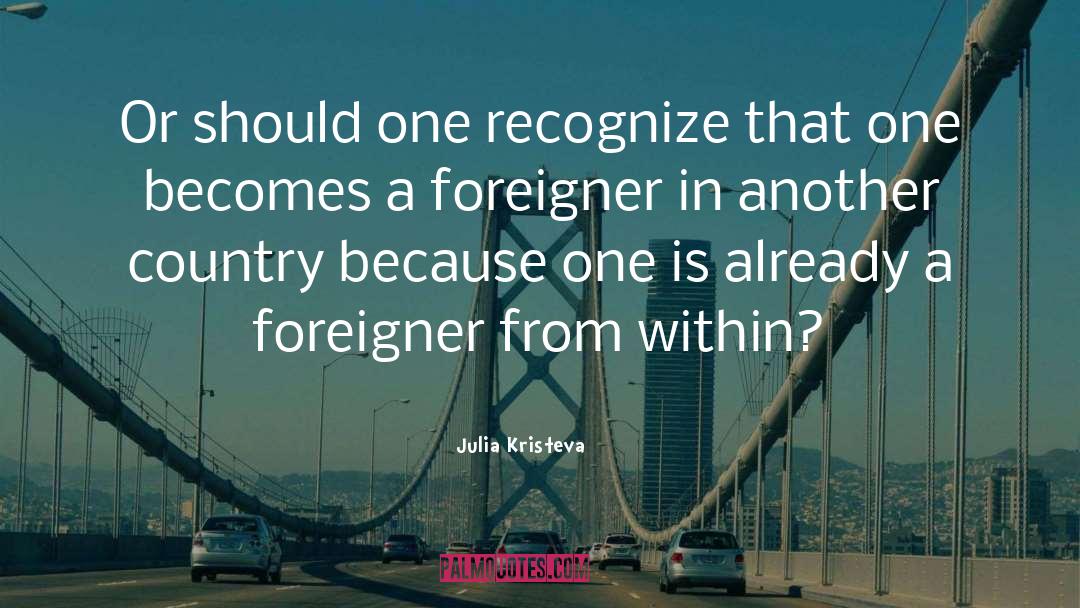
Today's milestone is human madness. Politics is a part of it, particularly in its lethal outbursts. Politics is not, as it was for Hannah Arendt, the field where human freedom is unfurled. The modern world, the world of world war, the Third World, the underground world of death that acts upon us, do not have the civilized splendor of the Greek city state. The modern political domain is massively, in totalitarian fashion, social, leveling, exhausting. Hence madness is a space of antisocial, apolitical, and paradoxically free individuation
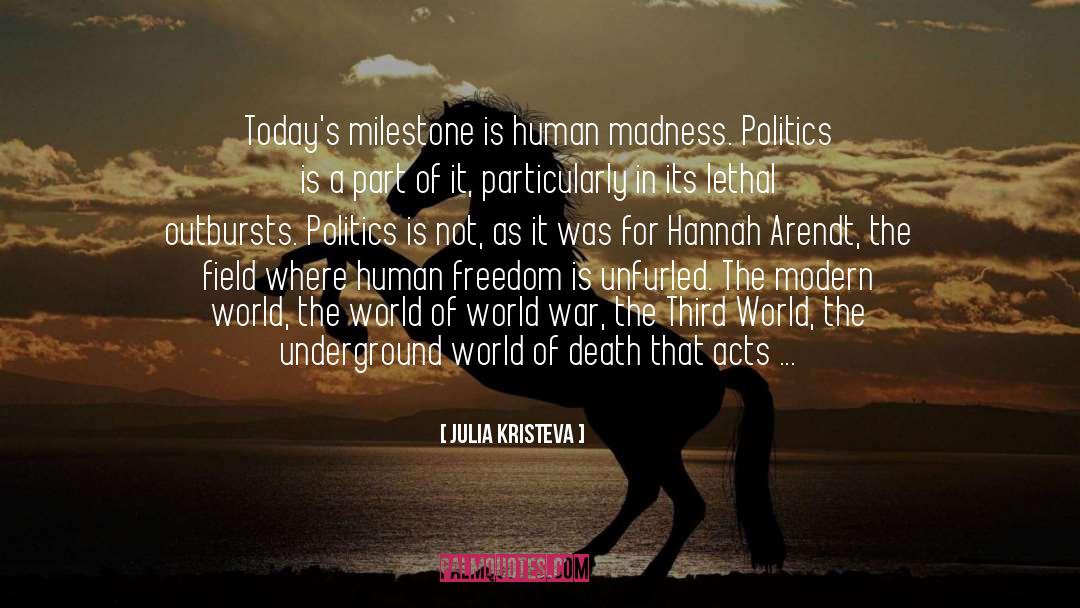
Can the beautiful be sad? Is beauty inseparable from the ephemeral and hence from mourning? Or else is the beautiful object the one that tirelessly returns following destructions and wars in order to bear witness that there is survival after death, that immortality is possible?
